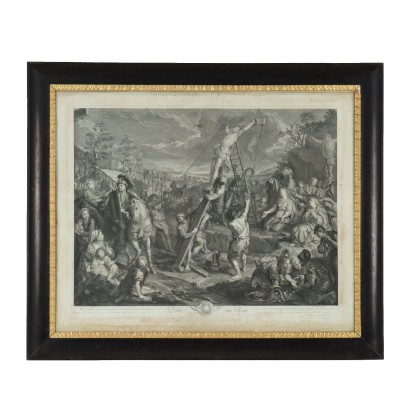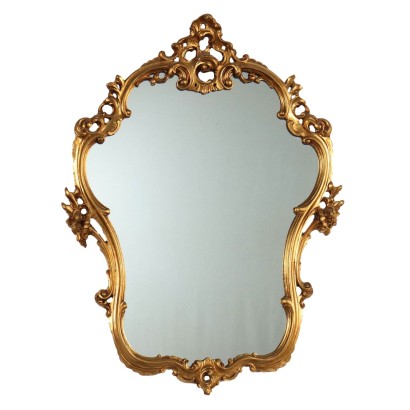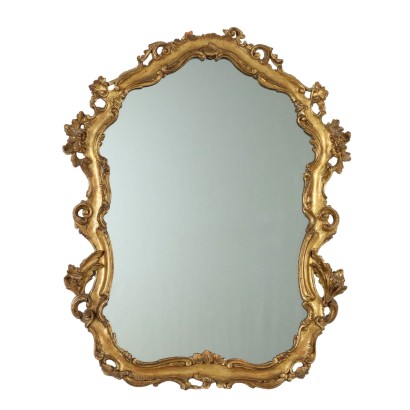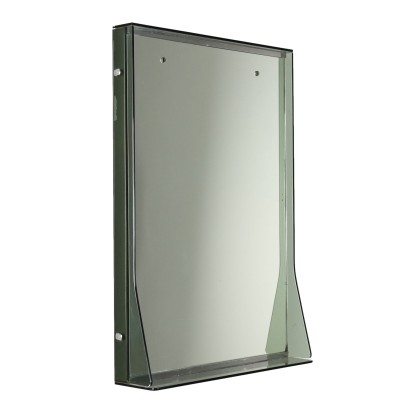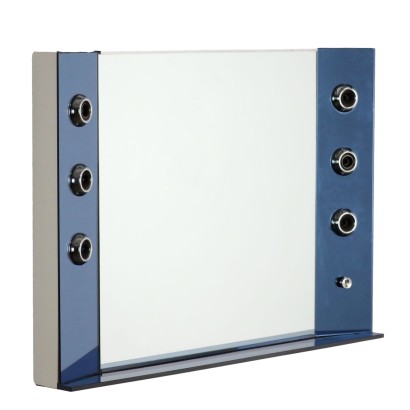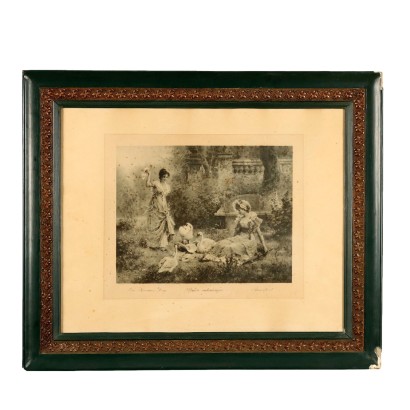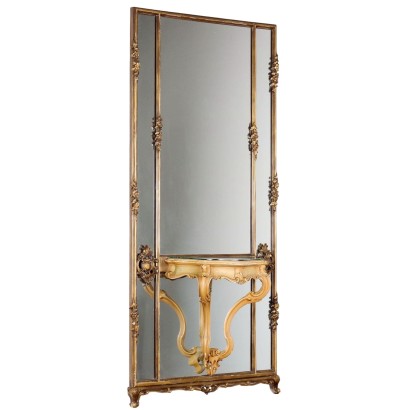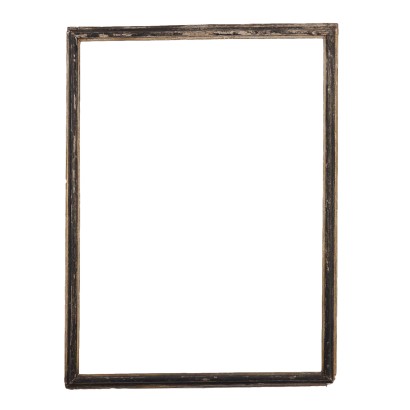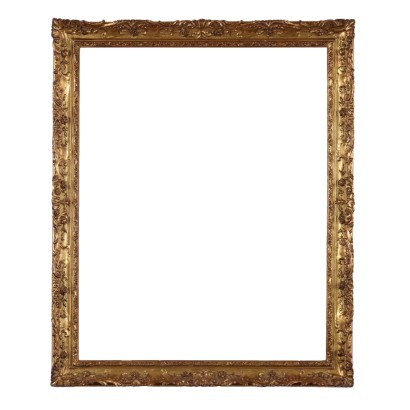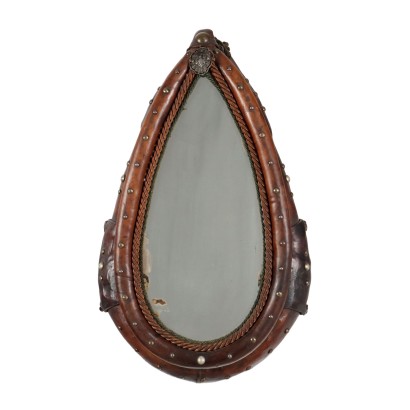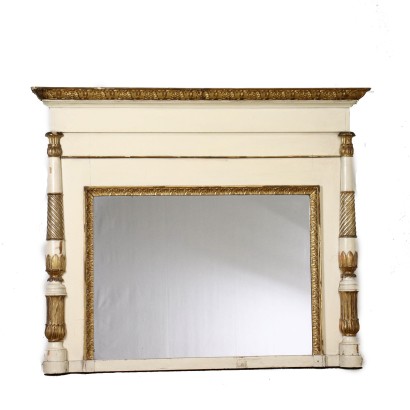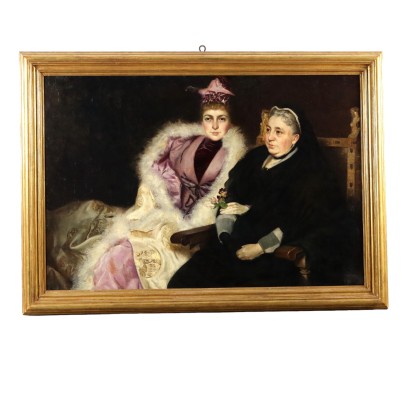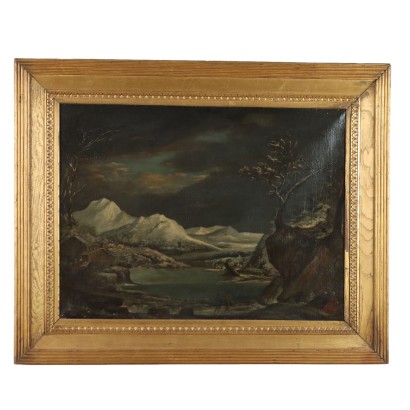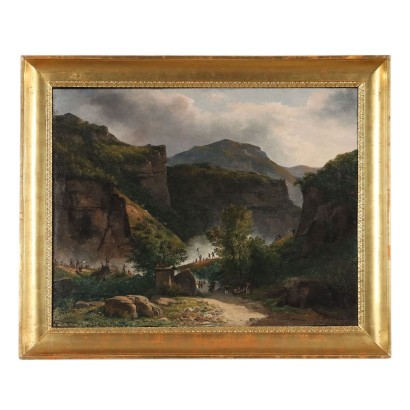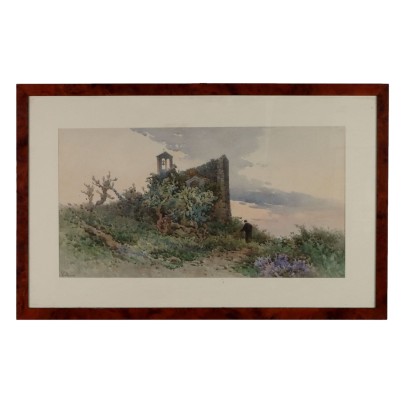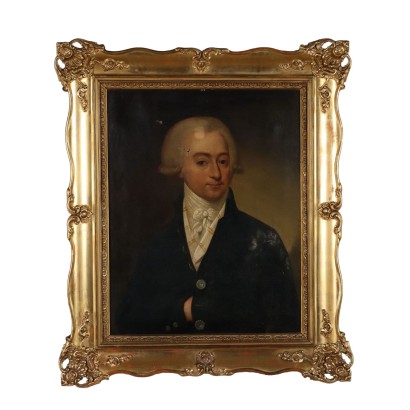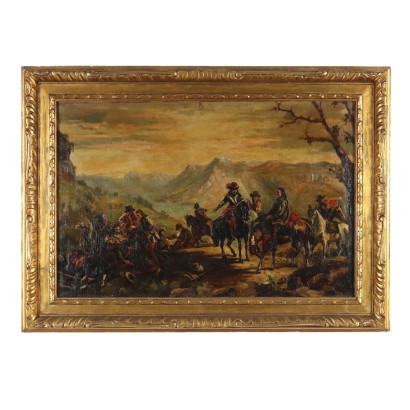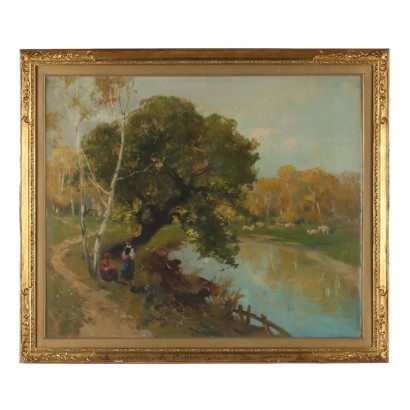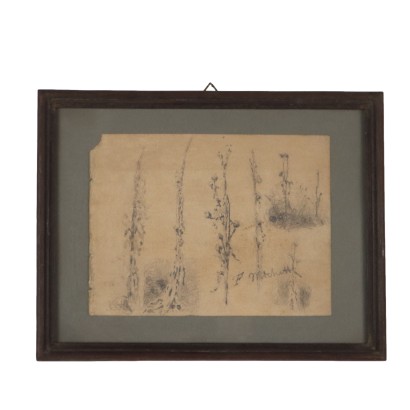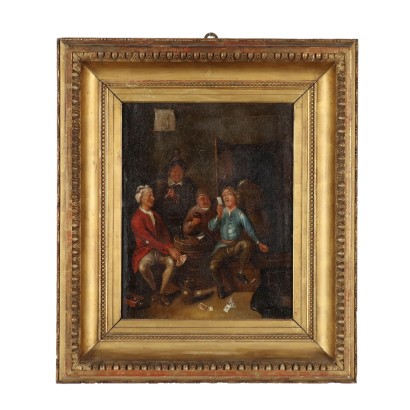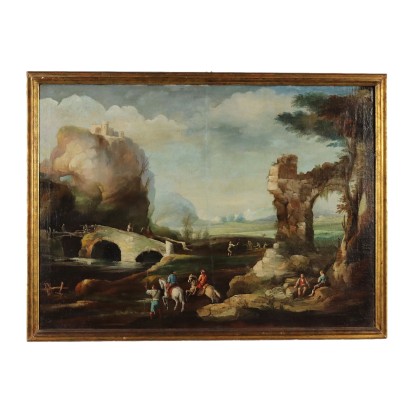Antique Empire Frame Walnut Religious Subject Italy XIX Century - Italy
Features
Italy
Style: Empire (1804-1815)
Age: 19th Century / 1801 - 1900
Origin: Italy
Main essence: Walnut
Description
Empire walnut frame with gilded Greek fret molding, containing a print of the Stations of the Cross “Crucifixion of Jesus”. Italy, first quarter of the 19th century.
Product Condition:
Product that due to age and wear requires restoration and polishing. We try to present the real condition of the furniture as completely as possible with the photos. If some details are not clear from the photos, what is reported in the description is valid.
Dimensions (cm):
Height: 67
Width: 83
Maximum size (cm):
Height: 80,5
Width: 96,5
Depth: 4,5
Additional Information
Style: Empire (1804-1815)
Decorative style of the furniture that is affirmed under the Empire of Napoleon Bonaparte, that is, between 1799, the year of his election as consul, and 1815, the year of his definitive defeat.It has many elements of continuity with the previous Direttorio style, in the more general Neoclassical climate, which derived from the study of classical antiquity the forms and models to be inspired in the creation of furniture.
The peculiar feature of this style is a greater grandeur and courtesy of the furnishings, which had to convey the grandeur of the French nation to the world, hence the name Empire style.
The furniture is characterized by straight, majestic and massive lines, adorned with motifs dear to Napoleon such as bees, eagles, large Ns surrounded by laurel, and, after the Egyptian campaign, many elements taken from Egyptian art.
He prefers the flat bronze decorations, often gilded, to the refined carvings of previous years.
The typical essence of Empire furniture is mahogany.
Find out more with our insights:
Classic Monday: How society influences the taste in furnishings
Classic Monday: Empire, one style of furniture with political purposes
Classic Monday: in the Empire bed roots of culture
Classic Monday: the timeless charm of a toilet Empire
Age: 19th Century / 1801 - 1900
19th Century / 1801 - 1900Main essence: Walnut
Walnut wood comes from the plant whose botanical name is juglans regia , probably originally from the East but very common in Europe. Light or dark brown in color, it is a hard wood with a beautiful grain, widely used in antique furniture. It was the main essence in Italy throughout the Renaissance and later had a good diffusion in Europe, especially in England, until the advent of mahogany. It was used for solid wood furniture and sometimes carvings and inlays, its only big limitation is that it suffers a lot from woodworm. In France it was widely used more than anything else in the provinces. In the second half of the eighteenth century its use decreased significantly because mahogany and other exotic woods were preferred.Other customers have searched:
Specchiera, caminiera, frame, cornice, ventole, specchi, psiche, specchiera basculante, specchio d'appoggio, applique..
Se ti interessano specchi, specchiere, psiche, toilette, dai un'occhiata ai nostri approfondimenti sul blog e presentazioni su FineArt
Leggi di più
Una coppia di specchiere a cavallo tra barocco e barocchetto
Il nuovo gusto nel Granducato di Toscana tra Rococò e Neoclassicismo in una specchiera intagliata
Una elegante specchiera intagliata e dorata, espressione dello stile Regency
Il fascino senza tempo della Toilette
Un reimpiego di qualità: da trumeau a specchiera
Caminiera Neoclassica, Firenze, ultimo quarto XVIII secolo
Specchiera Neoclassica, Firenze, fine XVIII secolo
Coppia di Specchiere Irlandesi, in Stile Giorgio III, seconda metà XIX secolo
Specchiera Cinese, Ultimo Quarto XVIII Secolo
Consolle Parietale con specchi
Consolle inglese, metà XIX secolo con specchi
Caminiera Impero, Lombardia, primo quarto XIX secolo
Psiche Impero, Francia, primo quarto XIX secolo
Cornice laccata, Veneto, ultimo quarto XVIII secolo
Specchiera Barocca, Bologna Inizio XVIII Secolo
Specchiera a Cassetta, Bologna Inizio XVIII Secolo
Cornice edicola, Venezia, XVI secolo
Sull'antiquariato in generale dai un'occhiata anche a:
Classic Monday: da un pezzo dei nostri magazzini alla storia dell'antiquariato
L'antiquariato dalla A alla Z: il Dizionario dell'Antiquariato
Il dizionario dell'antiquariato - Lastronatura
Il dizionario dell'antiquariato - Mascherone
Il dizionario dell'antiquariato - Natura morta
Il dizionario dell'antiquariato - Opificio
Il dizionario dell'antiquariato - Pastiglia
Il dizionario dell'antiquariato - Savonarola
Il dizionario dell'antiquariato - Rosone
Intaglio barocco con motivo a ricciolo
Leggi di più
Una coppia di specchiere a cavallo tra barocco e barocchettoIl nuovo gusto nel Granducato di Toscana tra Rococò e Neoclassicismo in una specchiera intagliata
Una elegante specchiera intagliata e dorata, espressione dello stile Regency
Il fascino senza tempo della Toilette
Un reimpiego di qualità: da trumeau a specchiera
Caminiera Neoclassica, Firenze, ultimo quarto XVIII secolo
Specchiera Neoclassica, Firenze, fine XVIII secolo
Coppia di Specchiere Irlandesi, in Stile Giorgio III, seconda metà XIX secolo
Specchiera Cinese, Ultimo Quarto XVIII Secolo
Consolle Parietale con specchi
Consolle inglese, metà XIX secolo con specchi
Caminiera Impero, Lombardia, primo quarto XIX secolo
Psiche Impero, Francia, primo quarto XIX secolo
Cornice laccata, Veneto, ultimo quarto XVIII secolo
Specchiera Barocca, Bologna Inizio XVIII Secolo
Specchiera a Cassetta, Bologna Inizio XVIII Secolo
Cornice edicola, Venezia, XVI secolo
Sull'antiquariato in generale dai un'occhiata anche a:
Classic Monday: da un pezzo dei nostri magazzini alla storia dell'antiquariato
L'antiquariato dalla A alla Z: il Dizionario dell'Antiquariato
Il dizionario dell'antiquariato - Lastronatura
Il dizionario dell'antiquariato - Mascherone
Il dizionario dell'antiquariato - Natura morta
Il dizionario dell'antiquariato - Opificio
Il dizionario dell'antiquariato - Pastiglia
Il dizionario dell'antiquariato - Savonarola
Il dizionario dell'antiquariato - Rosone
Intaglio barocco con motivo a ricciolo
Alternative proposals
It could also interest you

